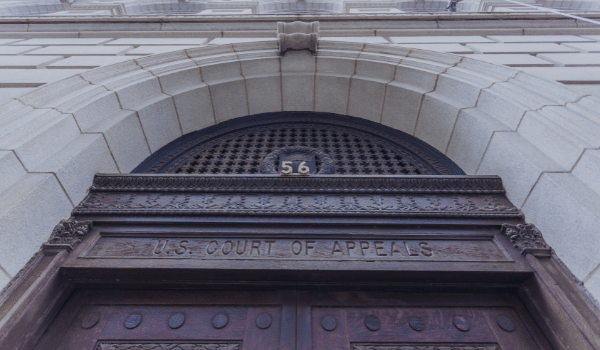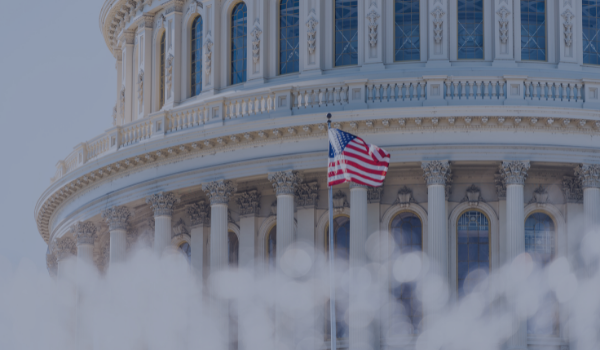In a battle between the Internal Revenue Service (IRS) and the State of Delaware, who wins? Well, in the context of a discovery dispute, a Magistrate Judge in the United States District Court for the District of New Jersey held in a decision dated July 16, 2021, that the IRS has the upper hand.
The Dispute
In 2013, the IRS began an examination of two captive managers, Artex Risk Solutions, Inc. (Artex) and Tribeca Strategic Advisors, LLC (Tribeca), which is owned by Artex. As part of the examination, the IRS served a number of document requests on Artex. As part of its response to the IRS, Artex produced email correspondence between it and the Delaware Department of Insurance (DDOI).
Thereafter, the IRS served a subpoena on the DDOI seeking documents in connection with the approximately 200 Delaware-licensed micro-captive insurance companies managed by Artex. Among the documents requested by the IRS were emails between the DDOI and Artex or Tribeca relating to the “captive insurance program”.
The DDOI produced a large number of documents in response to the subpoena. However, none of the documents produced were client-specific emails with the exception of emails relating to nineteen captives that had consented to the production of such email communications. The DDOI refused to produce email communications with any captive that withheld such consent.
The IRS and the DDOI engaged in a lengthy negotiation regarding the remainder of the emails. The DDOI offered to produce the emails of the non-consenting captives if the IRS would agree to keep such emails confidential. The IRS refused and, instead, filed a petition in federal district court to enforce the subpoena. The name of the case is United States of America v. Delaware Department of Insurance, Civil Action No. 20-829-MN-CJB.
Section 6920 of the Delaware Insurance Code
The DDOI claimed that section 6920 of the Delaware Insurance Code prevented it from producing the emails to the IRS. The DDOI said that all documents obtained by the DDOI in connection with the licensing or regulation of an insurance company:
must, unless the prior written consent (which may be given on a case-by-case basis) of the captive insurance company to which it pertains has been obtained, be given confidential treatment, are not subject to subpoena, may not be made public by the Commissioner, and may not be provided or disclosed to any other person at any time except:
(1) To the insurance department of any state or of any country or jurisdiction other than the United States of America; or
(2) To a law-enforcement official or agency of this State, any other state or the United States of America so long as such official or agency agrees in writing to hold it confidential and in a manner consistent with this section.
Since the captives had not consented to the disclosure, and the IRS had not agreed to keep the emails confidential, the DDOI claimed that its hands were tied. The IRS, on the other, claimed that section 6920 did not prevent the DDOI from complying with the document request.
The Powell Standard
Generally, the IRS has wide latitude when it comes to requesting that a taxpayer produce documents. The IRS has the initial burden of showing that its request is valid. However, this is not a heavy burden. In order to make a prima facie case that the request is valid, the IRS must simply demonstrate that:
(1) “that the investigation will be conducted pursuant to a legitimate purpose”; (2) “that the inquiry may be relevant to the purpose”; (3) “that the information sought is not already within the [IRS’] possession”; and (4) “that the administrative steps required by the Code have been followed.”
This is called the “Powell Standard” because it was set forth by the United States Supreme Court in the case, United States v. Powell, 379 U.S. 48, 57-58 (1964).
In order to meet its burden under Powell, the IRS needs only submit an affidavit by a revenue agent attesting to the four factors. Thereafter, the burden shifts to the subpoenaed party to prove that the enforcement of the subpoena by the court would result in an “abuse of the court’s process”. The opposing party may do this by showing that one of the four Powell factors does not exist. However, this is a very heavy burden, and the opposing party must submit real evidence disputing the prima facie case established by the revenue agent’s affidavit.
Did the IRS Already Have the Emails?
Artex claimed that the third Powell factor was missing. Since Artex had produced email communications between its captive clients and the DDOI, the emails requested by the IRS from the DDOI were already in the IRS’ possession. In fact, that is how the IRS knew of the existence of the emails. They had been produced by Artex.
The magistrate judge in his opinion did not dispute that the IRS already had a copy of the emails that it was seeking from the DDOI. However, in an effort to demonstrate just how heavy the burden of opposing an IRS document request is, the judge said that the IRS did not have “the version of the emails that were in the DDOI’s possession”. The DDOI’s version of the emails “could be of independent evidentiary value to the IRS”. As a result, the judge found that the IRS had satisfied all four of the Powell factors.
Is the Code Preempted by State Law?
The DDOI’s second argument against production was that the Code’s discovery provisions were preempted by section 6920 of the Delaware Insurance Code. This argument was based on the provisions of the McCarron-Ferguson Act (MFA).
The MFA was enacted by Congress in response to the decision of the United States Supreme Court in United States v. South-Eastern Underwriters Ass’n, 322 U.S. 533 (1944). Prior to that case, it was believed that the business of insurance was not interstate commerce and not subject to federal regulation. As a result, the states had nearly unfettered discretion to regulate the business of insurance within their borders. In South-Eastern Underwriters, the Court held that insurance companies conduct business in multiple states and, therefore, are engaged in interstate commerce and subject to federal regulation. To override the decision of the Supreme Court in South-Eastern Underwriters, Congress passed the MFA, which, in relevant part, provides that:
(a) State regulation
The business of insurance, and every person engaged therein, shall be subject to the laws of the several States which relate to the regulation or taxation of such business.
(b) Federal regulation
No Act of Congress shall be construed to invalidate, impair, or supersede any law enacted by any State for the purpose of regulating the business of insurance . . .
So, the question for the magistrate judge was whether the right of the IRS to seek the emails was overridden by the non-disclosure provisions of section 6920 of the Delaware Insurance Code.
Did the IRS Document Request Seek to Regulate the Business of Insurance?
The judge in his opinion said that the threshold issue in any MFA case is whether the “challenged conduct itself constitutes the business of insurance”. The MFA only precludes the federal government from intruding on the state’s right to regulate the “business of insurance”. If the production request did not encompass the business of insurance, then the Delaware statute would not prevail.
The court said that three factors determine whether certain conduct is the business of insurance:
(1) “whether the practice has the effect of transferring or spreading a policyholder’s risk”;
(2) “whether the practice is an integral part of the policy relationship between the insurer and the insured”; and
(3) “whether the practice is limited to entities within the insurance industry.
After a review of case law, the magistrate judge held that the act of gathering and maintaining documents did not constitute the business of insurance. As a result, section 6920 did not preempt the discovery provisions of the Code, and the DDOI would be required to produce the emails to the IRS.
Obviously, Section 6920 does not deal with the fixing of insurance rates, nor the selling and advertising of insurance policies, nor the type of insurance policy a company can issue, nor anything about such a policy’s reliability, interpretation or enforcement. Relatedly, the statue does not appear to be about the “relationship between insurer and insured” or the “relationship between the insurance company and the policyholder.”
Fundamentally, Section 6920 does not deal with the substance of how an insurance company treats or interacts with its insureds; it has to do with how a government agency treats documents that an insurance company provides to it. In other words, it is not about the relationship between the insurer and the insured; it is about the relationship between the insurer and its regulator, or the relationship between the regulator and other insurance regulators or investigatory agencies.
What Happens Now?
Often in federal district court, a trial judge will refer discovery matters to a magistrate judge. The magistrate judge then makes recommendations to the trial judge. The trial judge generally adopts the findings of the magistrate judge but is not required to.
So, the DDOI can object to the report of the magistrate judge and try to convince the trial judge that section 6920 of the Delaware Insurance Code prevents the disclosure of client-specific emails without either the consent of the captives or the agreement of the IRS to keep the emails confidential. However, this is unlikely. The most unlikely outcome is that the DDOI will have to turn over the emails to the IRS.



